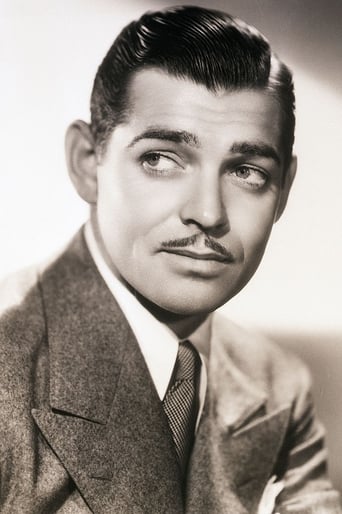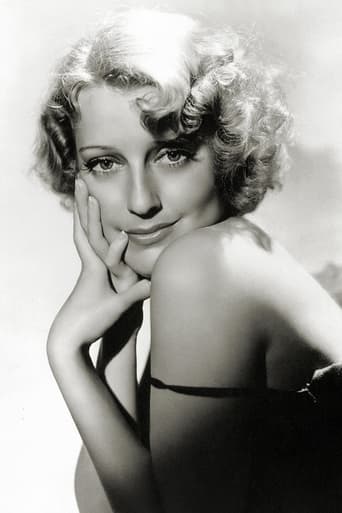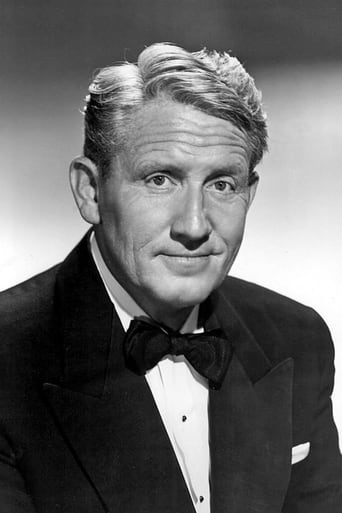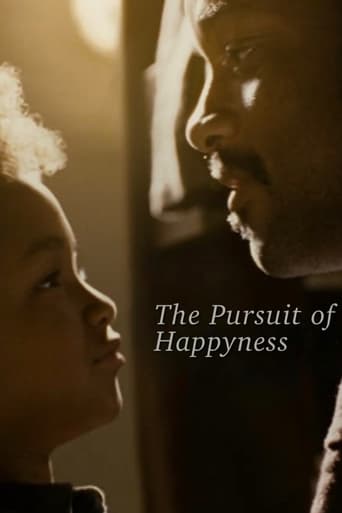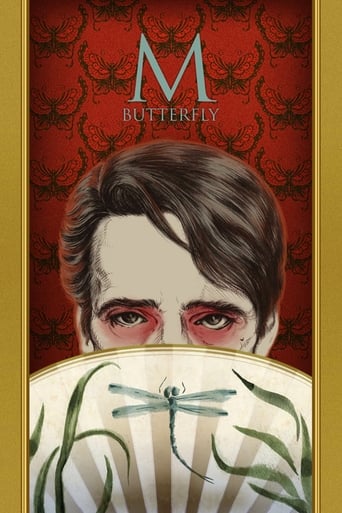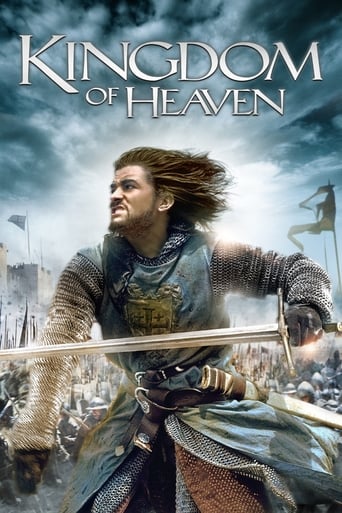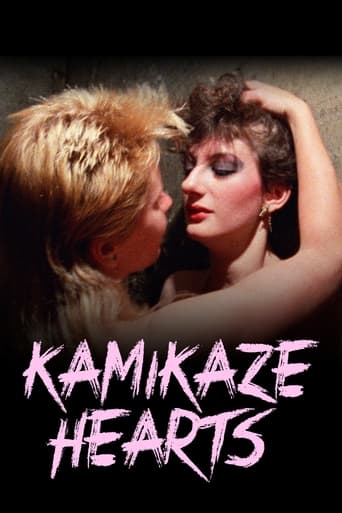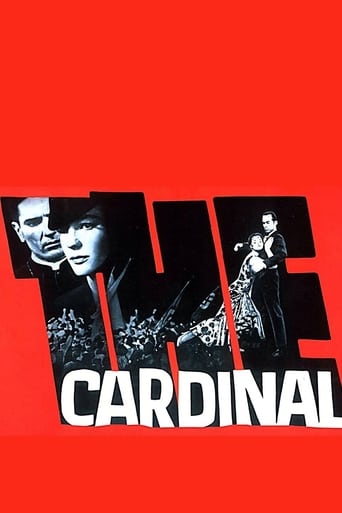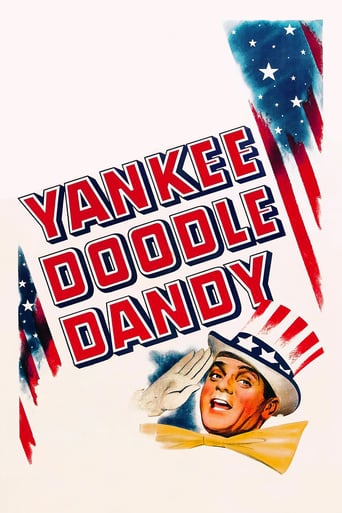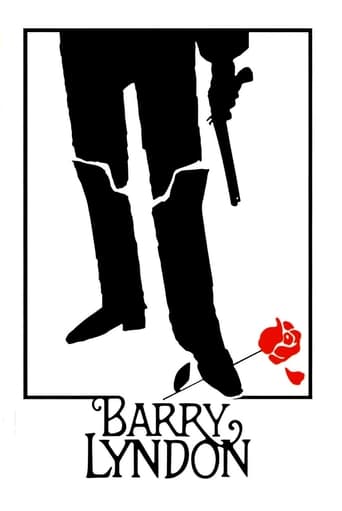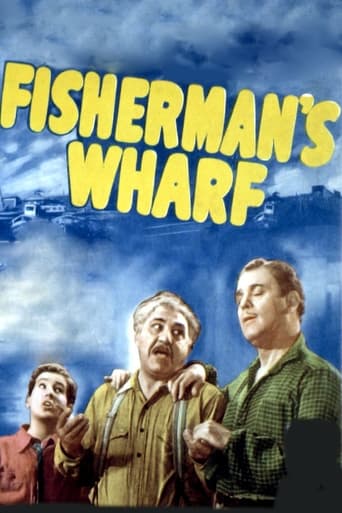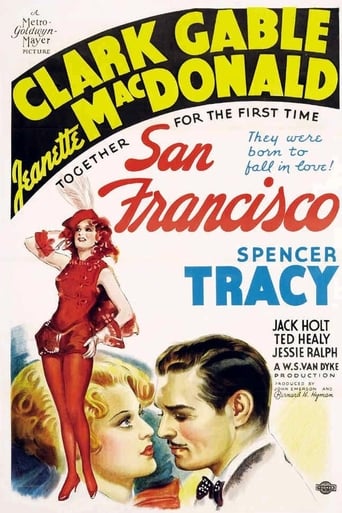
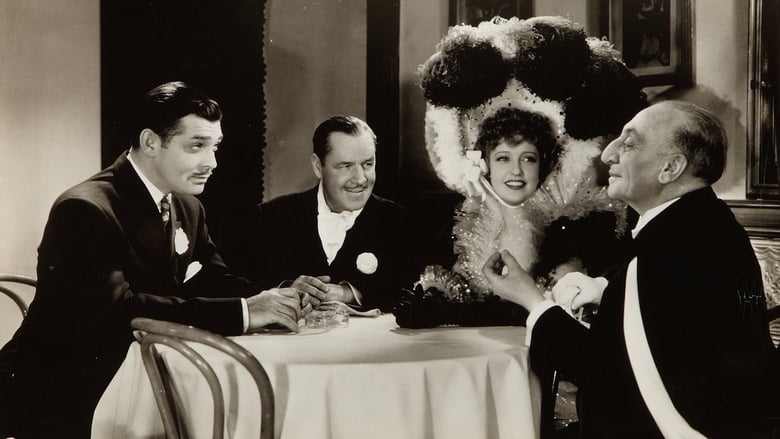
San Francisco (1936)
A beautiful singer and a battling priest try to reform a Barbary Coast saloon owner in the days before the great earthquake and subsequent fires in 1906.
Watch Trailer
Cast
Similar titles
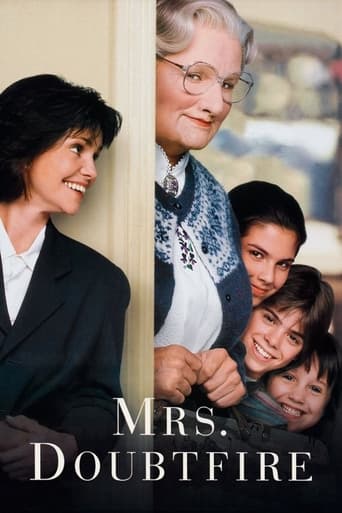

Reviews
Great visuals, story delivers no surprises
It's a mild crowd pleaser for people who are exhausted by blockbusters.
This is one of the few movies I've ever seen where the whole audience broke into spontaneous, loud applause a third of the way in.
By the time the dramatic fireworks start popping off, each one feels earned.
When Jeanette MacDonald hits the high C then leaves the old San Francisco dive bar in anguish, you know it's only a matter of time before the ground starts shaking and old San Francisco becomes a city of the past. Of course, the iron butterfly only gets her evening gown torn just slightly with a smudge or two of dirt as she makes her way through the fallen debris. No MGM diva would dare be seen any other way, even if the plot called for that. The public wouldn't stand for seeing their MGM goddesses any other way but pristine.Long before lost youth wore flowers in their hair and political activists marched for gay rights, San Francisco was a wild place where poor folks from the east coast traveled thousands of miles to establish a new life and hopefully become the new rich of the west coast. Blackie Norton (Clark Gable) is a charming but ruthless political hopeful who discovers Mary Blake (Jeanette) singing in a dive, and thanks to his influence, she rises to the top of the cities' cultural center as an opera star. This attracts the attention of wealthy Jack Burley (Jack Holt) whose matriarchal mother (the fantastic Jessie Ralph) was once one of those poor folks, and a lucky one since her late husband had made a fortune after they arrived in the undeveloped Northern California coast. Overseeing all this intrigue is a compassionate but tough priest (Spencer Tracy) who acts as Gable's moral conscience.While there had been earthquakes on film before (both real and fictional), none had been as lavishly filmed like this one. Irving Thalberg's unit at MGM spared no expense in putting together one of the most thrilling sequences in film that truly was ground breaking. The political story, fictional in story but true to life in historical accuracy, gives a moral twist to this epic tale that comes together at the end where Gable, as the anti-hero, finds a soul in himself and realizes that there is more to his character than just the desire for money and power. MacDonald gives her best dramatic performance as the fragile looking but ultimately strong heroine, while Tracy (nominated for a leading actor Oscar in an essentially supporting role) is outstanding.Try not to have the desire to hug Jessie Ralph as the portly matron who confides her humble beginnings to MacDonald in a truly profound scene. That vinegary voice and grandmotherly feel of this veteran actress made her a natural scene stealer, and her final scene in this film is tear-jerking. She certainly was deserving of an Oscar nomination for her part which would have made her more well known today than she is, even though she certainly has made a following thanks to this film, "David Copperfield", "After the Thin Man" (refering to nephew in law William Powell as "Nicolass" and half a dozen screwball comedies where she showed her salty aunts and matrons had equally as much life in them as the feisty heroine she usually advised.An exciting opera sequence is just one of the movie's musical highlights which includes "Would You?" (famously reprised in "Singin' in the Rain"), an emotional "Battle Hymn of the Republic" and of course, the rousing title song which Jeanette rips into with the teeth of a shark and that Judy Garland would famously re-record with added lyrics. Everything about this film is exciting from start to finish with more than just the earthquake sequence to recommend it. Even if there is one shadowy flaw in the special effects, that hardly matters because this film has stood the test of time and remains as profound drama and strong entertainment.
No doubt about it - this is one of Hollywood's greatest films. Well written, acted, directed and edited, it is a love story set against the events leading up to the 1906 earthquake, both political and economical.The resulting fire that really destroyed the city after the earthquake (due to broken water mains making it impossible to resource water) is made the focus of the last half hour (the first quake occurs at 1:33:30 into the film and the aftershock occurs at 1:38:15).Only four of MacDonald's films were nominated for best picture Oscars and this was the most deserving of them all.Gable and MacDonald are a sensational team - what tremendous chemistry they had and what a pity they never made another film together. Though I don't begrudge Tracy his first Best Actor nom as the priest, Father Mullin, he really deserved a supporting nod, not a leading one. That belonged to Gable, giving a lusty and thoughtful performance as a man who must change his character during the course of the action. He is truly the star of the film. His and MacDonald's love scene in his office where he recognizes she is afraid of the woman inside of herself is one of film's most subtle and beautifully handled.A nod to Jessie Ralph for her heart-breaking cameo as Maisie Burley.The only negatives are the excessively long excerpts from Gounod's FAUST (part of Miss MacDonald's contract to have as much opera to sing in her films as possible, even changing characters such as backwoods tomboy Rose Marie into an established opera star in the film of that name) and the stupid cheerful march to view the ruined city singing away at the end.Also a writing faux pas- when Gable asks MacDonald how long this opera stuff has been around she answers 150 years. Wrong by that amount of time as well - opera began around 1600, making that 300 years at the early 1906 date the question was asked.Let's not quibble though. The special effects were so great the category was established that next year at the Oscars. This deservedly won for Sound but for my money deserved another Oscar for Editing. Still the six noms it got can't be denied.It endures however and is a great example of Hollywood at its finest.
Set in 1906, just days before the great San Francisco earthquake, Metro-Goldwyn Mayer's (MGM) 1936 movie spectacle, "San Francisco," offers up a unique retelling of the Barbary Coast's famous disaster. This classic drama-disaster film, directed by W.S. Van Dyke, stars Clark Gable, Jeanette MacDonald, and Spencer Tracy. "San Francisco," tells the story of Blackie Norton (Gable), a handsome, hard-nosed saloon keeper who has his sights set on Mary Blake (MacDonald). Suddenly, things turn shaky. "San Francisco" is structured on the classic Hollywood formula; boy meets girl, boy loses girl, and boy wins girl back – with an earthquake as a memorable twist.Gable and MacDonald give convincing performances, as the movies signature star-crossed lovers. Even though, "San Francisco" is not a musical, Jeanette MacDonald lends the movie her operatic voice and is allowed to demonstrate it repeatedly. Not only does MacDonald sing the movie's signature theme song, "San Francisco – Open Your Golden Gate", she also entertains viewers with several other musical numbers. Some, however, might find that MacDonald's numerous musical numbers cause San Francisco to grind to a halt.While the special effects in "San Francisco" may appear to be lackluster, compared to those that destroyed Los Angeles in "Earthquake" (1974), by Universal Studios, they are still as impressive and captivating today as they were in 1936. Dramatic scenes, such as the one which shows citizens running helplessly as the dome of San Francisco city hall crumbles behind them, or the panoramic shot from atop Nob Hill showing the great city in a blaze of fire, are replicated convincingly."San Francisco" allows an audience to accompany Blackie and Mary on a romantic ride through love, song, and despair. The most significant factor in "San Francisco" is the movies ability to transport viewers to a different time and place, in order to experience a historical event that both shaped and built the great city of San Francisco, and to witness a bygone era of Hollywood film making.
Alongside "Gone With The Wind" MGM's SAN FRANCISCO (1936) is without doubt the finest romantic drama to emanate from Hollywood in the thirties. A movie that had everything going for it - a splendid story and script, a superb star in Clark Gable, a beautiful actress with an arresting singing voice in Jeanette MacDonald, wonderful songs and an earthquake sequence that will not only knock your socks off but can stand up proudly beside anything that computer graphics can conjure up today. The picture also was the most sensational profit making movie of 1936 speeding past "The Great Ziegfeld" from the same year. Produced for the studio by John Emerson and Bernard Hyman it was directed with great punch and attention to detail by W.S.Van Duke. The Perfectly handled screenplay was written by Anita Loos from a story by Robert Hopkins and the crisp monochrome cinematography was by Oliver T. Marsh.It is 1905 in San Fransico and Blackie Norton (Clark Gable) runs "The Paradise" a not too respectable night club on the rowdy Barbary Coast. A girl Mary Blake (Jeanette MacDonald) arrives in the city from the country looking for a job singing. She approaches Norton who interviews her and is very taken by both her beauty and her prowess as a singer. He hires her and in the following weeks they fall in love but Blackie comes up against some competition from Jack Burly (Jack Holt) the wealthy owner of the Tivoli opera house. Burly falls for Mary too and wants to buy out her contract from Norton to have her sing in the opera. But Norton refuses and is not for turning. However after an altercation with Blackie she walks out on him and goes to the Tivoli where she becomes a singing sensation. Still in love with Blackie she however sees no future with him and just as she becomes engaged to Burly a tremendous earthquake wreaks havoc on the great city. The picture ends with the death of thousands of citizens including Jack Burly and an injured Blackie searching through every bit of rubble for Mary before eventually finding her alive and well and leading the survivors singing the hymn "Nearer My God To Thee" in a makeshift camp outside the destroyed city.Performances are top notch throughout the movie. Gable is terrific as the flamboyant Blackie Norton. His role looking every bit like a dry run for his Rhett Butler three years later. Excellent too is the inviting and quite lovely Jeanette MacDonald. The vivacious lady is simply electric! She just lights up the screen and delights us with her mellifluous singing voice in renditions of arias from Gounod's FAUST, Verdi's LA TRAVIATA, Nacio Herb Brown's lovely WOULD YOU and the rousing title song SAN FRANCISCO written by Polish composer Bronislau Kaper who was just starting out on his illustrious film music career at MGM. The song would become a hit and remains to this day the city's favoured anthem. Of course the real star of the picture is the special effects with the climactic earthquake sequence. Designed and implemented by Russian montage expert Slavko Vorkapach it remains an amazing achievement for thirties cinema which can still manage to excite and frighten today with just as much impact as anything in modern film.It is almost inconceivable that a seventy five year old movie can remain such a firm favourite which it steadfastly has maintained over the years. The film was nominated for four Acadamy Awards (winning one for sound recording), has a beautiful screenplay, is wonderfully directed and besides the lovely songs from the attractive Miss MacDonald contains some moments of real charm especially the scenes with the two principles. SAN FRANCISCO is a great and fascinating film from vintage Hollywood and looks like it will continue to be one of the most fondly remembered movies of all time.
